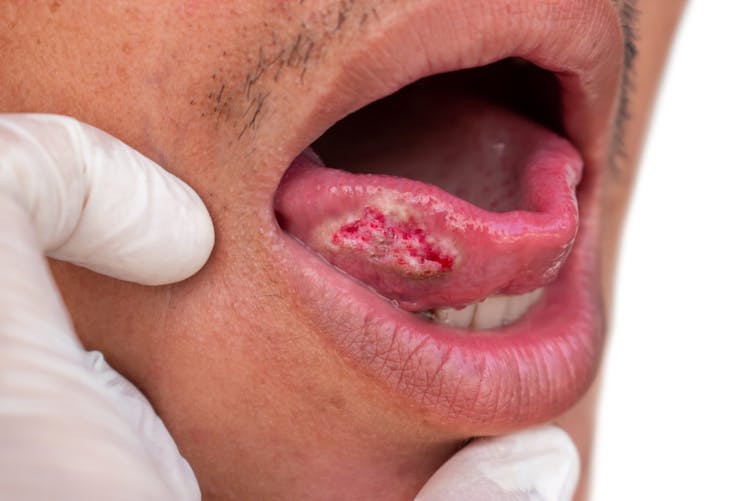Regular dental checkups and oral hygiene visits are important for identifying the early stage of mouth cancer. However, the shortage of dentists in the UK has led to a rise in mouth cancers that are spotted too late, according to the charity Oral Health Foundation. Ninety per cent of NHS dentists surveyed by the BBC last year were not accepting new adult patients for NHS treatment.
Every year, about 9,000 people in the UK are diagnosed with mouth cancer and just over 3,000 lives are lost to the disease.
However, if it is caught early, mouth cancer has an excellent cure rate: over 90% with relatively simple treatment. Unfortunately, about half of new mouth cancer diagnoses in the UK are detected late.
If you are struggling to find a dentist or get a dentist appointment, it is vital that you check your mouth for early signs of cancer.
What to look out for
The main symptoms of mouth cancer include:
- ulcers in the mouth that do not heal within three weeks
- lump or swelling anywhere in the mouth, jaw or neck that persists for more than three weeks
- new red or white patches in the mouth
- numbness of tongue or other area of the mouth
- unexplained loose teeth
- chronic sore throat or hoarseness that persists for more than six weeks.
If you notice any of the above things, it’s important to see your GP or dentist (if available) as soon as possible. In the UK, dentists and doctors can refer patients to hospital specialists for urgent suspected cancer assessments. People referred this way will be seen within 14 days of referral to exclude or confirm a cancer diagnosis.

Excellent cure rate
In recent years, the range and scope of treatments for mouth cancers have increased and improved, including new techniques, such as robotic surgery and immunotherapy. And improved understanding of the disease has helped doctors personalise treatment approaches and enhance the patient’s experience.
Patient participation in clinical trials has further advanced our knowledge and provided high-quality evidence to support treatment selection. A significant proportion of patients complete treatment successfully and recover well.
In some patients, however, advanced cancer stage and complex treatment can affect facial appearance, speech, swallowing and shoulder movement. These can affect a person’s ability to socialise as their speech and ability to eat or drink will be impaired by the treatment.
In some patients whose work or recreational interests rely on good shoulder or arm movement, employment and lifestyle adjustments might be required after treatment.
Prevention is better than a cure
Some lifestyle factors are related to an increased risk of mouth cancer. These include smoking and other forms of tobacco use, alcohol consumption, poor diet and chewing betel quid (paan).
In some patients, mouth cancer can be related to the human papillomavirus (HPV) caught through oral sex. People who take medicine to suppress their immune system, such as organ transplant recipients, might also be at a higher risk of developing mouth cancers.
But it’s important to remember that almost half of all mouth cancers are preventable.
Read more: Oral sex is now the leading risk factor for throat cancer

